Glenn County

UC Cooperative Extension Glenn County
Who is UC Cooperative Extension Glenn County?
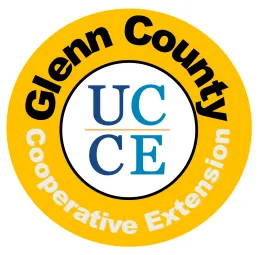
UC Cooperative Extension offices serve every county in California. The Glenn County Cooperative Extension Office is located in Orland, California, at the Glenn County North Administration Building.
The University of California's 64 Cooperative Extension (UCCE) offices are local problem-solving centers. More than 400 campus-based specialists and county-based farm, home, and youth advisors work as teams to bring the University's research-based information to Californians. UCCE is a full partnership of federal, state, county, and private resources linked in applied research and educational outreach. UCCE's many teaching tools include meetings, conferences, workshops, demonstrations, field days, video programs, newsletters, and manuals. Thousands of volunteers extend UCCE's outreach, assisting with the California 4-H Youth Development Program and Master Gardener Program.
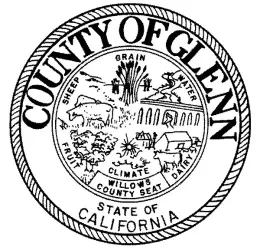
- Academic advisors work with farmers to implement more efficient growing methods, solve pest management problems, and develop smart water-use strategies.
- Natural resource advisors conduct wildfire education and research natural resources conservation.
- Nutrition educators promote nutritious eating habits and exercise for better health.
- Through the California 4-H Youth Development Program we engage youth to become the citizens of tomorrow.
- Thousands of volunteers extend our reach through the Master Gardener, Master Food Preserver, California Naturalist, and the California 4-H Youth Development Programs.
- We work in full partnership with federal, state, county, and local government agencies, as well as individuals and private entities.
2023-2024 2-Page Report
Make sure you check out our latest 2-page report!
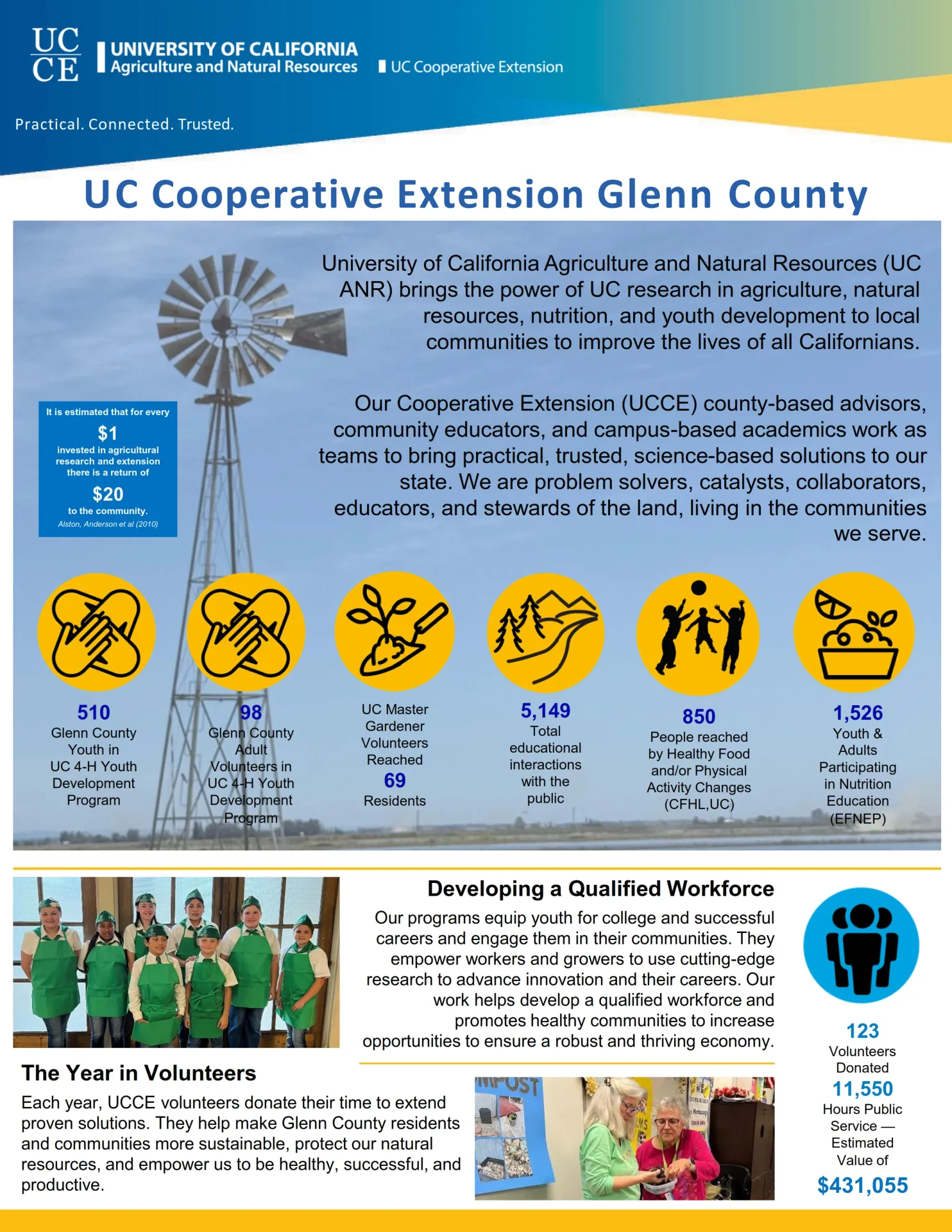
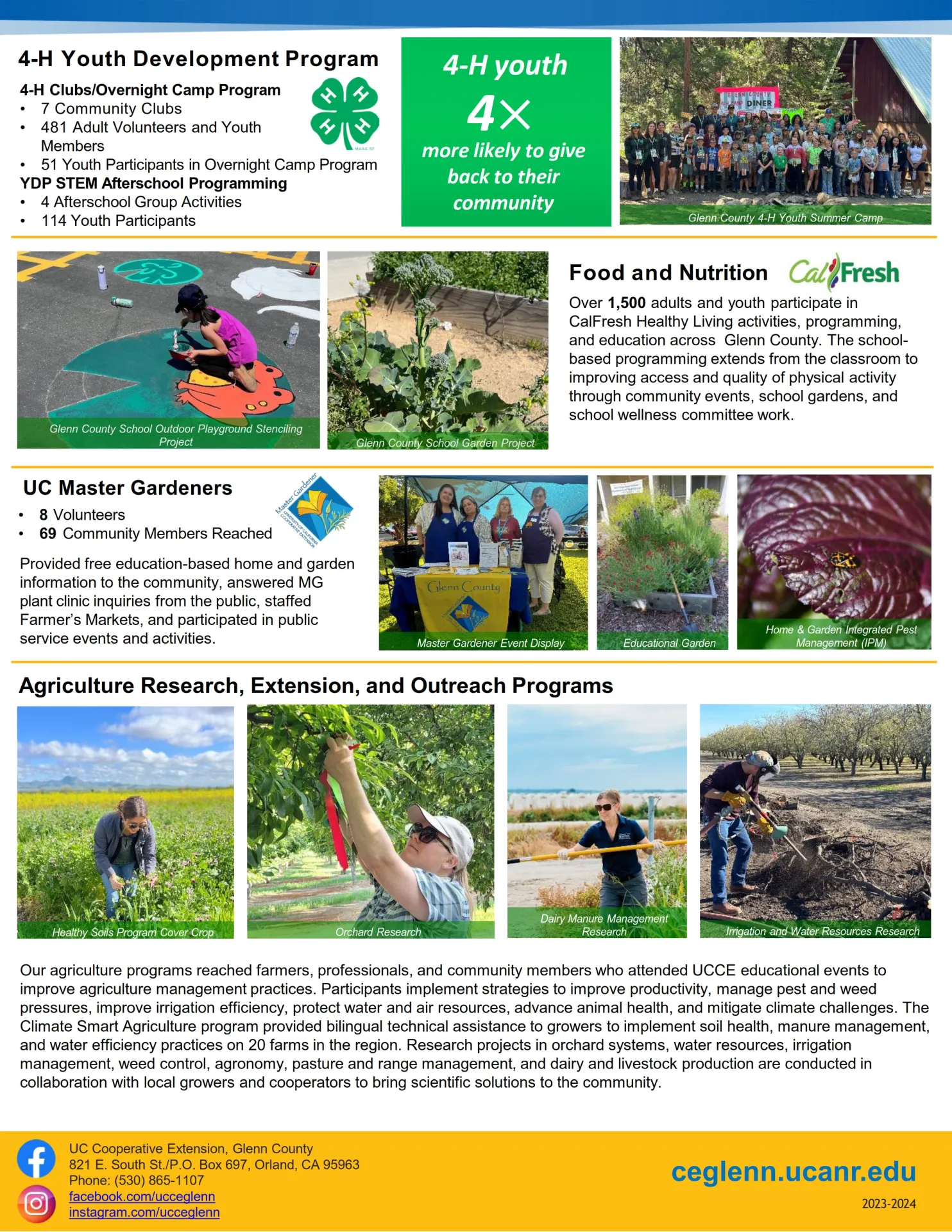
2023 Annual Report
Have you seen our latest annual report? Make sure to check out the 25-page report, which includes all of our program updates and beautiful pictures of Glenn County agriculture.
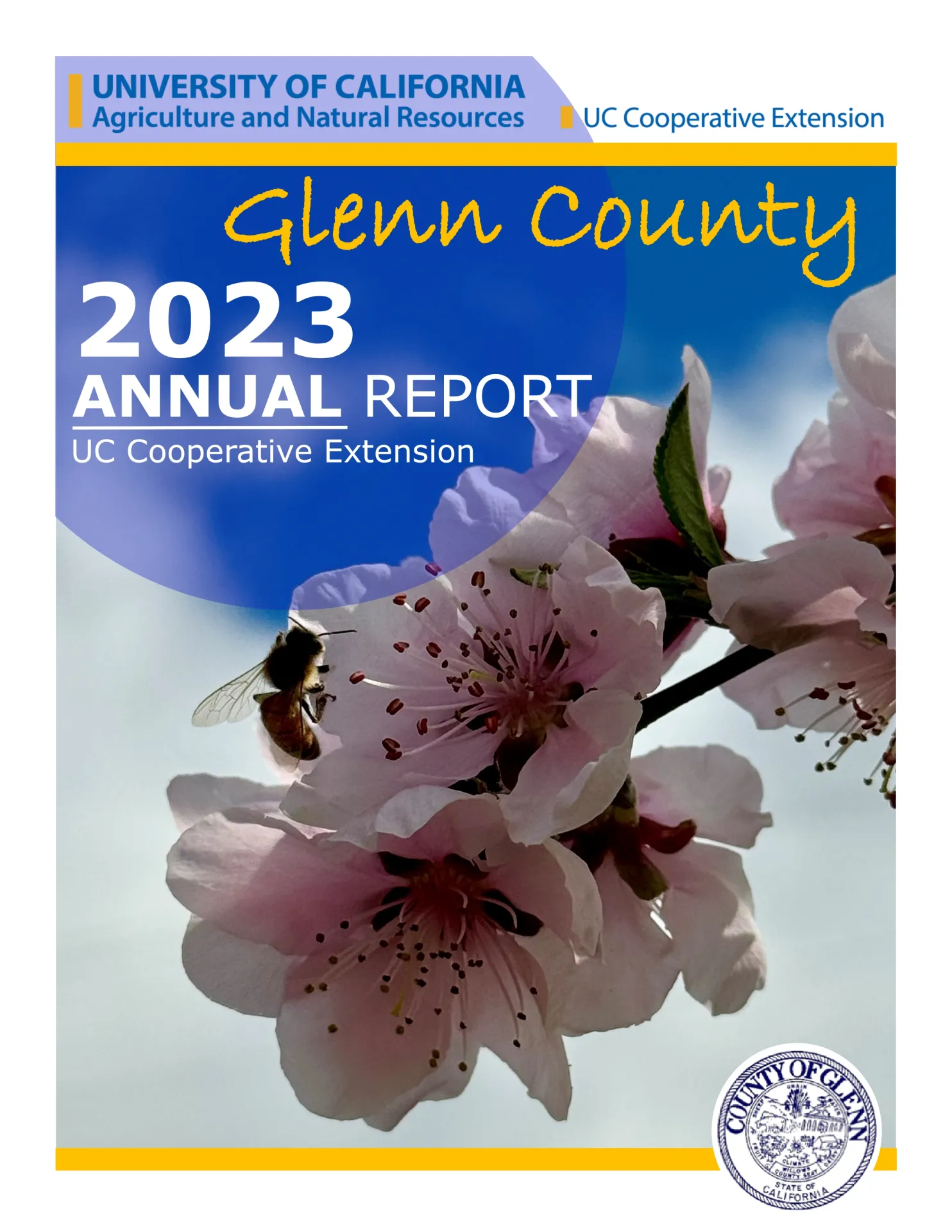
UCCE Newsletters
For current and updated information about your specific industry, please subscribe to our newsletters to stay informed of local events and information. Click on the image below to sign-up!

Social Media
Like us on Facebook! Follow us on Instagram!


Become a fan of UCCE Glenn County, and follow and like us!
Contribute for a Better Future
Office Locations
UC Cooperative Extension - Glenn County
821 E. South Street
P.O. Box 697
Orland, CA 95963
United States
